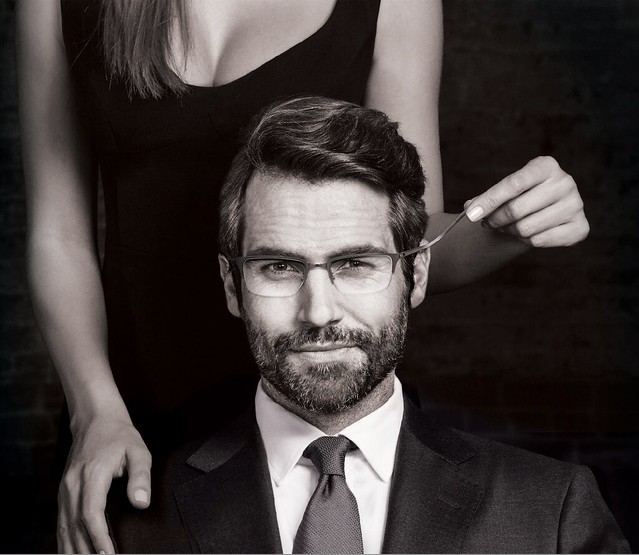
This is a personal story…
After a successful GDOL event in Istanbul a few years ago, my friends and I enjoyed cocktails overlooking the Bosphorus. I believe it was TechCrunch’s Mike Butcher who made a comment about an advertisement on a building across the water. I couldn’t read it at all but I could see that there was something there. I also remember questioning whether he could read it or if he was just playing around. So I borrowed his glasses and sure enough, I could actually read the message. I was blown away, suddenly feeling “old” but more so, questioning what I had been missing all this time. It was then that I realized that I would need to eventually wear glasses. It was just a matter of when.
That was 2012. And since then, I did nothing. Perhaps, it was just my way of avoiding the inevitable. To borrow from Thomas Jefferson with a bit of a modification, “ [Avoiding the inevitable or what’s necessary] is like the man who stops the clock to save time.”
Then a few weeks ago, out of nowhere, I met the team at Flexon, a brand developed in 1988 that makes innovative eyewear using a “memory” metal developed in the early 60s as part of scientific naval studies on missile heat shields. The special titanium composite used in Flexon frames is unlike other metals in that it’s much lighter and will “remember” and return to its original shape, even when bent.
I shared my story and admitted that I was stalling the unavoidable need to wear glasses. That’s when things took an interesting turn. I was offered a pair of Flexon frames from the brand’s new Pivotal Force collection to take for a test spin. If I wanted to identify objects farther away, why wouldn’t I see the benefit in this opportunity?
You Can’t See What You Can’t See
The next thing I knew, I was set up with an appointment at Dr. Gold and Associates, a VSP Premier Program provider in Sunnyvale, California. There I met Jessica, Rich and the team who were very flexible and welcoming. A few moments later, I was introduced to Dr. Gold, who led me through a series of high-tech tests that took all of a few minutes. And like that, he had an pretty close idea of my prescription range. Seriously, in this moment, I was wondering why it took me this long to get to this point. This was too fast and too easy. It was also eye-opening in that the simple tests I had to undergo next only made it that much more obvious that I had been missing out on an entirely new dimension or, should I say, depth of view.
Oh, my results revealed that I am nearsighted.
As Dr. Gold was entering the results of our test, he asked if I had any previous conditions or surgery in the past. I had forgotten to mention that when I was a child, I did in fact have surgery to correct Strabismus (aka lazy eye). I was so young, yet I remember it like yesterday. Perhaps that’s one of the reasons I didn’t want to visit an eye doctor. I guess that’s for a psychiatrist to answer. 😉 That’s when Dr. Gold asked me a very interesting question that still has my brain churning right now: “When you go to the movies, can you see, really see 3D?”
“Um, 3D?” I asked. “Of course I can see 3D, that’s why I pay 2x more for a movie ticket,” I said, halfway joking. But in all seriousness, I could see things come toward me and I always marveled in the moments. Dr. Gold however, wanted to run a quick test—just as a matter of offering perspective.
Needless to say, there is a test to determine whether or not a patient can see 3D in movies, etc. I only partially passed it. He was surprised I was able to pass any of it at all. He explained that most people who undergo Strabismus surgery lose the perspective of depth in certain situations. In other words, I can semi-appreciate 3D movies, which is a bummer now that Star Wars VII is out. But he also said something that still has me thinking today: “Most people don’t realize what they’re missing because they haven’t seen it before.”
This couldn’t be truer, especially in my line of work. We often let cognitive bias and validation bias ground or center our decisions. We don’t see the world as it is. Instead, we see it as we are.
I See You There, in the Distance
Following the exam with Dr. Gold, it was time to meet with my optician, Rich, to select my Flexon frames and get them fitted to the shape of my face. I had several colors and styles to choose from in the line’s new Pivotal Force series, but I zeroed in on exactly the pair I wanted almost instantly.
About a week later, my first pair returned, complete with anti-reflective coating, et al., and I was excited to try them on. The first thing I remember thinking was that I could hardly feel them on my face. I was worried that I would sport big red marks where the pads rest on the bridge of my nose…but no. Nothing. And, then I looked up and out to the distance. Whoa. I felt like Superman, minus the X-ray vision.
Driving home was also an experience in of itself. Street and exit signs in the distance were now within grasp. This whole time, a level of depth I wasn’t able to enjoy before is now in my line of sight.
Back to Form: Memory Metal
Because of Flexon’s generosity, I wanted to dedicate a section of this story to my experience with the frames. Not only are they light and strong, they’re incredibly flexible. Yep, I’ve already tested them by accident several times. We can just chalk that up to being a newbie I suppose. Either way, it doesn’t matter. I’m sure to do it again and the frames I’m sure will return to form.
That’s the interesting thing about Flexon’s frame. The metal is resilient and also strangely flexible. Each time they’re bent, the frame returns to its natural (designed) state no matter the strength of (within reason) and the duration of the bend.
The Pivotal Force collection features a temple that mimics the movement of a lever as it pivots around its axis point and interlocks with the open end-piece construction. Integration of the end-piece and temple creates fluid movement and a sleek aesthetic.
That’s my story to date. Had I not met the Flexon team, I would have continued to postpone my eye exam and continued to miss the details that lie in the distance. Don’t let my procrastination hold you back. This has been a tremendous lesson personally. I am no longer postponing anything related to health or well-being….no matter how busy I am.
Thank you, Flexon.
Thank you, Dr. Gold and company.
You can click here to find a provider in your area who carries Flexon. Or you can explore Flexon frames online via Eyeconic.
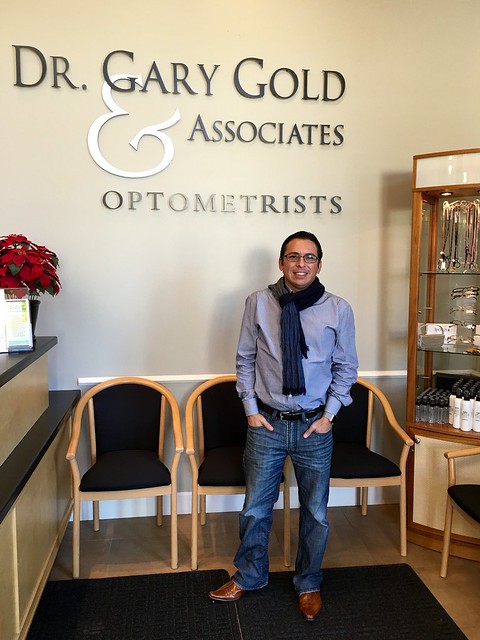
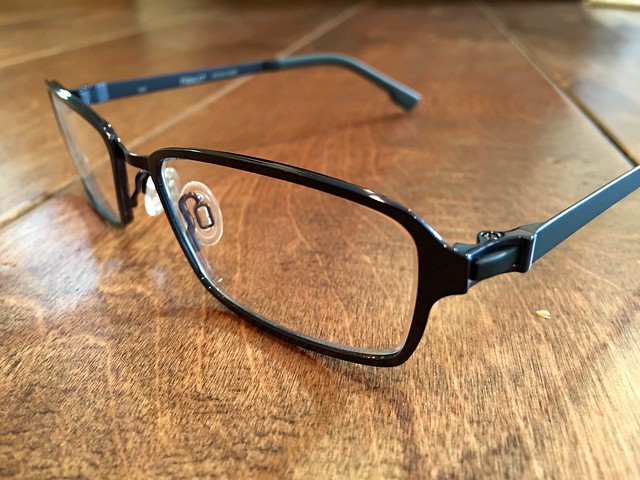
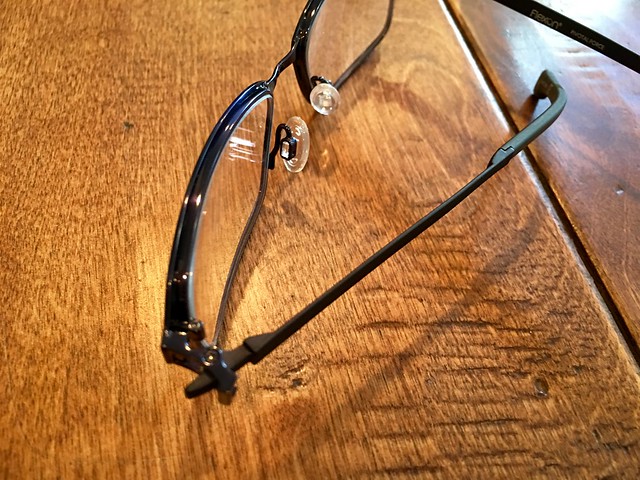
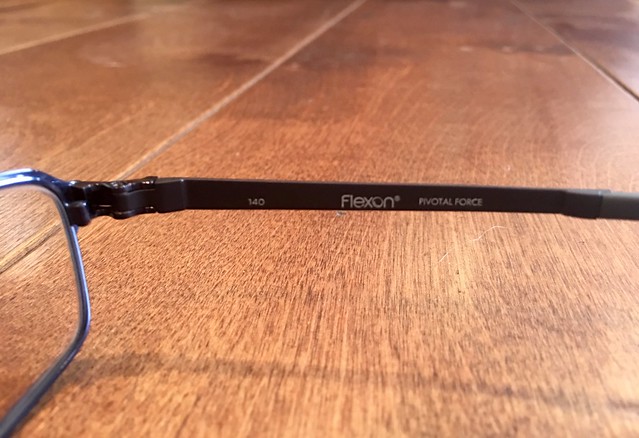



Way to go Brian. I know many people who should take your lead and start seeing what they’re missing. I had to start at 40 but it has changed my life. You look great!
Thank you Claire. It’s a whole new world!
Great article on your experience and very informative. I have a grandson that has had the surgery and none of us knew that he would not be able to see 3D. Glad you got where you need to be with your eyes, good to learn about Flexon (I wear glasses as well) and to learn about Strabismus surgery. Thanks for sharing.
I see the lenses are relatively thin. I am curious if these frames can hold a thicker frame. For instance, progressive lenses.
Way to go.
I have always been hard on glasses. These frames hold up to a lot of abuse, including salt water. I’ve been wearing the flexon brand since 1990 and have only had 1 pair break. At that time, even after 4 years of use, I was able to get them replaced free of charge.
Once the crizal lenses came along, it is now a feather weight combination that lasts.
Carol, I have progressives in the frame now. 🙂
i PRAY to these frames and have been using them for almost 20 years! they are the only frames i have not been able to harm. i just got the second pair ever, and the originals were still perfectly fine! cosmetically, they were showing wear, but the memory metal was/is FINE! quite sobering after a whole lifes’ history of TRASHING glasses!!
i STRONGLY recommend flexon above ALL others!!, you simply WILL NOT be sorry!!